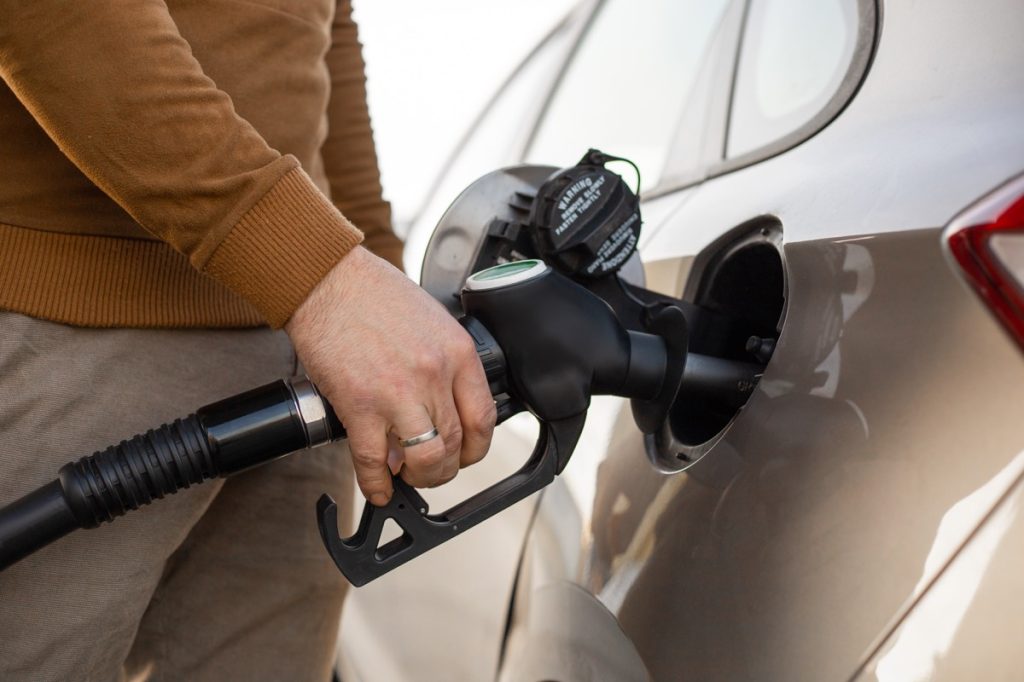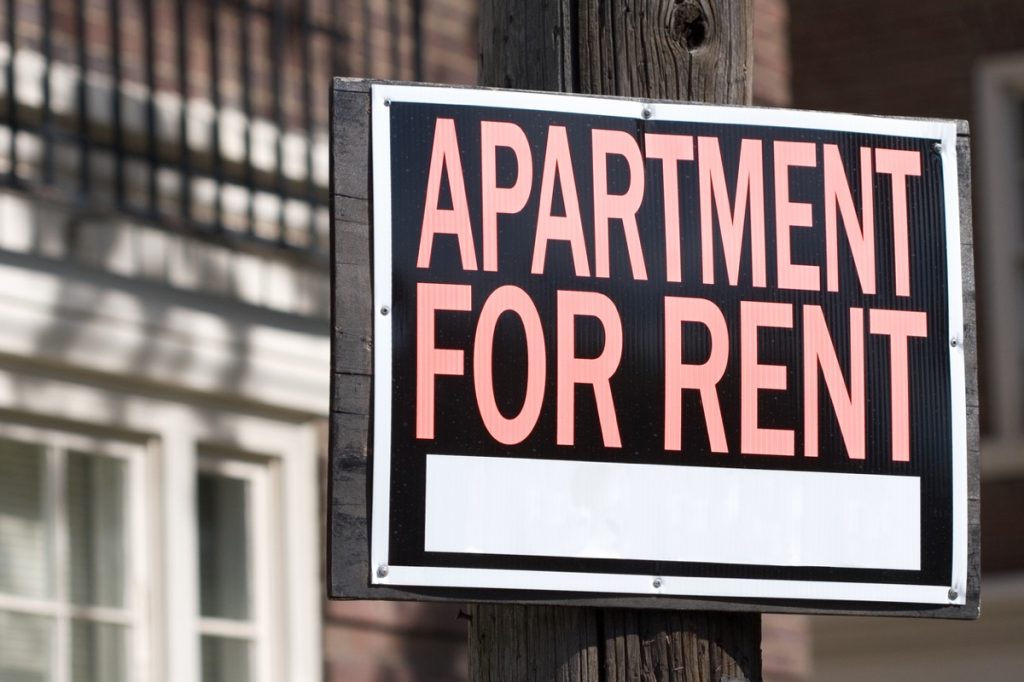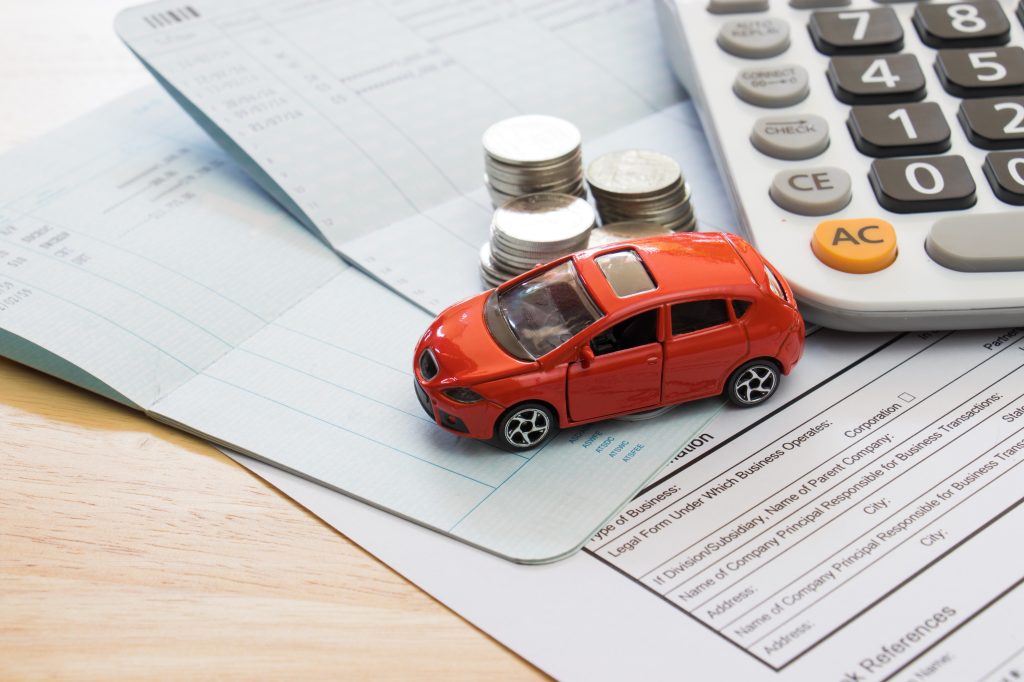7 Ways to Save Money on Your Commute, According to Financial Experts

The time you spend getting to work in the morning can drag on, but that’s not the only drain commuting can cause. From the high costs of owning and maintaining a car to exorbitant prices at the pump, the average commuter in the U.S. can expect to spend $8,466 per year on their workday roundtrips—or about 19 percent of their total income, according to Bankrate. Fortunately, there are still plenty of ways you can cut back on how much you’re spending just to get to your workplace. Read on for the best ways to save money on your commute, according to financial experts.
RELATED: 9 Surprising Things That Can Boost Your Credit Score, Finance Experts Say.
1
Consider your fuel costs.

The ever-changing cost of gas is one of the most clear-cut challenges when it comes to pricing out your commute. But while you can’t control the markets, you can do some research before filling up.
“Check out your nearest gas station and see what kinds of rewards programs they offer,” suggests Robert Farrington, founder & CEO of The College Investor. “These programs typically offer really great discounts, cash back options, or points that can be used for future fuel purchases.”
In most cases, drivers accumulate points for every gallon purchased, meaning that long-distance commuters can see the benefits add up and go a long way. “Some gas stations will also partner with credit card companies on cash back offers, which is a win/win if you already have a credit card that applies,” he adds.
You can also do a little poking around to ensure you’re getting the best prices.
“There are apps that can help you find gas stations with the cheapest gas, like GasBuddy,” says Farrington. “The navigation app Waze also has a feature that shows prices at nearby gas stations. Every cent saved helps in the long run!”
2
Look into becoming a geo commuter.

In many ways, opting for lower living costs can ultimately drive up the price of your commute if it means you’re moving farther away from a high-paying job. Instead of canceling out your savings, Jeffrey Stouffer, finance expert with JustAnswer, suggests considering a geo-commuting arrangement.
“This is where you rent a small apartment that is close to where you work and choose to stay in it Monday evening through Friday morning,” he explains. “When work is over on Friday, head for home and enjoy the weekend in the relaxed environment you have further away from the city center. And when it comes to returning to work, leave very early in the morning and stay ahead of the normal return to work rush hour.”
While the added cost of rent may seem like a budget breaker, finding the right deal could bring down your overall annual costs, Stouffer says. Just factor in all expenses and do the necessary calculations to figure out if this lifestyle change is for you.
RELATED: Never Use Your Credit Card for These 6 Purchases, According to Financial Experts.
3
Try using any available public transportation.

If you own a vehicle, drying to work each day may seem like a no-brainer. But if you live someplace where you can catch a train, bus, or other ride, ditching your car may be one of the easiest ways to cut costs.
“I encourage commuters to consider the significant cost-saving potential of utilizing local public transportation options if they’re regular commuters,” says Farrington. “Even if you only use public transit for part of your journey, you’re still making substantial savings on gas and reducing wear and tear on your car.”
Live in an area without a public transportation system? He also suggests considering carpooling with friends or finding co-workers in your area who might be willing to group together and split the costs.
4
Plan your route to pay less.

It’s not just gas prices that can rack up during your drive. Experts also point out that the roads you choose to take could be costing you more than necessary.
“Plan your trip with an eye to avoid both toll routes and busy streets with hefty congestion fees,” Erika Kullberg, personal finance expert and founder of Erika.com, tells Best Life. “Or, if possible, use the apps Waze or Google Maps to navigate via routes with less expensive tolls—even if they add a few extra minutes to your commute.”
If there aren’t any viable alternatives, you could also consider changing your departure time. According to Stouffer, many municipalities charge less at different hours.
“Even HOV lanes can have toll rates jump during high congestion periods and drop when traffic does,” he explains. “Avoiding peak time by leaving early can save both time and tolls paid.”
RELATED: 10 Things You Should Stop Buying When You Retire, Finance Experts Say.
5
See if your employer offers any transportation benefits.

Many employers understand that commuting costs can add up quickly. That’s why you might want to check with your supervisor to see if any benefits are available that can help cover some of your expenses.
“Try to use your employer’s commuter benefits programs, such as pre-tax transit passes and parking benefits,” suggests Dane Habig, financial controller and budgeting expert with Utopia Management. “These programs enable you to deduct expenses for commuting directly from your paycheck before taxes are applied, thus reducing your taxable income. It is an easy way to make daily commuting less expensive without altering your routine.”
6
Look at your car insurance policy.

Gas and maintenance are car-related expenses that are difficult to predict or avoid. On the other hand, you should have more control over what you spend to insure your vehicle.
“The cost of insurance factors heavily into overall driving costs,” says Kyle Enright, financial expert and president of Achieve Lending. “This is a good time to review policies to make sure you are receiving any discounts for which you are eligible, including for safe driving records, home security systems, and joint policies.”
7
Consider other forms of transportation.

A car may not be the most cost-effective vehicle for your commute. Other more affordable options could help you balance your budget.
“I think using an e-bike as a daily transportation method could save you a lot of money,” says Habig.
He says the overall savings of using an e-bike to get to work can significantly outweigh the initial costs. “Compared to fuel or car maintenance, which are both expensive, electric bicycles are highly efficient by costing just a few cents per mile in electricity,” he says. “You also don’t need to worry about yearly registration fees and car insurance premiums when you have an e-bike.”
Pedaling in will also save you from paying tolls and parking fees. “Often, there are even cycle lanes to be found so that you do not have to ride in congested traffic during commuting hours, thereby lowering the length of such time,” Habig adds. “And apart from frugality reasons, e-bikes will reduce pollution due to carbon emissions occasioned by individual cars on roads.”